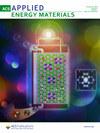MBCT training in IAPT: the experience of the first UK government funded teacher training programme
IF 5.4
3区 材料科学
Q2 CHEMISTRY, PHYSICAL
引用次数: 0
Abstract
Abstract This paper reports on the experience of the first cohort of cognitive behaviour therapists completing the first delivery of a UK government-funded mindfulness-based cognitive therapy (MBCT) teacher-training. Trainees completed a new curriculum approved by NHS England and commissioned by Health Education England (HEE) that enabled them to teach MBCT in Improving Access to Psychological Therapies (IAPT) services in England and to meet the criteria for registration for the British Association of Mindfulness-Based Approaches (BAMBA). The components of the training are described. Mixed quantitative and qualitative methods were used to assess the experiences of those trainees who completed that training. High levels of satisfaction were reported and the ‘embodiment’ of the trainers and supervisors was flagged as particularly significant. The retreat was experienced as a core component of the training that helped deepen mindfulness practice. Various challenges were identified, including from the retreat, technical difficulties and challenges with completion for a minority of trainees. Learning from the difficulties and responses to them are reported. Key learning aims (1) To understand the experience of trainees on an MBCT training programme for CBT therapists in Improving Access to Psychological Therapy (IAPT) services in England. (2) To identify key features of a training for CBT therapists that were experienced as helping or hindering learning. (3) To understand the content and issues involved in delivering a mindfulness-based cognitive therapy training.IAPT中的MBCT培训:首个英国政府资助的教师培训项目的经验
摘要:本文报告了第一批认知行为治疗师完成英国政府资助的基于正念的认知疗法(MBCT)教师培训的第一次交付的经验。受训者完成了由英格兰国民保健服务体系批准并由英格兰健康教育(HEE)委托的新课程,使他们能够在英格兰教授MBCT以改善获得心理治疗(IAPT)服务的机会,并符合英国正念方法协会(BAMBA)的注册标准。描述了培训的组成部分。使用了混合的定量和定性方法来评估完成培训的受训人员的经验。据报道,满意度很高,培训师和主管的“具体化”被标记为特别重要。这次静修是帮助深化正念练习的训练的核心组成部分。确定了各种挑战,包括撤退、技术困难和少数受训人员完成学业的挑战。报告了从困难中吸取的教训和对困难的反应。主要学习目标(1)了解英国CBT治疗师MBCT培训项目的学员在改善心理治疗(IAPT)服务方面的经验。(2)识别CBT治疗师培训的关键特征,帮助或阻碍他们的学习。(3)了解以正念为基础的认知治疗培训的内容和问题。
本文章由计算机程序翻译,如有差异,请以英文原文为准。
求助全文
约1分钟内获得全文
求助全文
来源期刊

ACS Applied Energy Materials
Materials Science-Materials Chemistry
CiteScore
10.30
自引率
6.20%
发文量
1368
期刊介绍:
ACS Applied Energy Materials is an interdisciplinary journal publishing original research covering all aspects of materials, engineering, chemistry, physics and biology relevant to energy conversion and storage. The journal is devoted to reports of new and original experimental and theoretical research of an applied nature that integrate knowledge in the areas of materials, engineering, physics, bioscience, and chemistry into important energy applications.
 求助内容:
求助内容: 应助结果提醒方式:
应助结果提醒方式:


